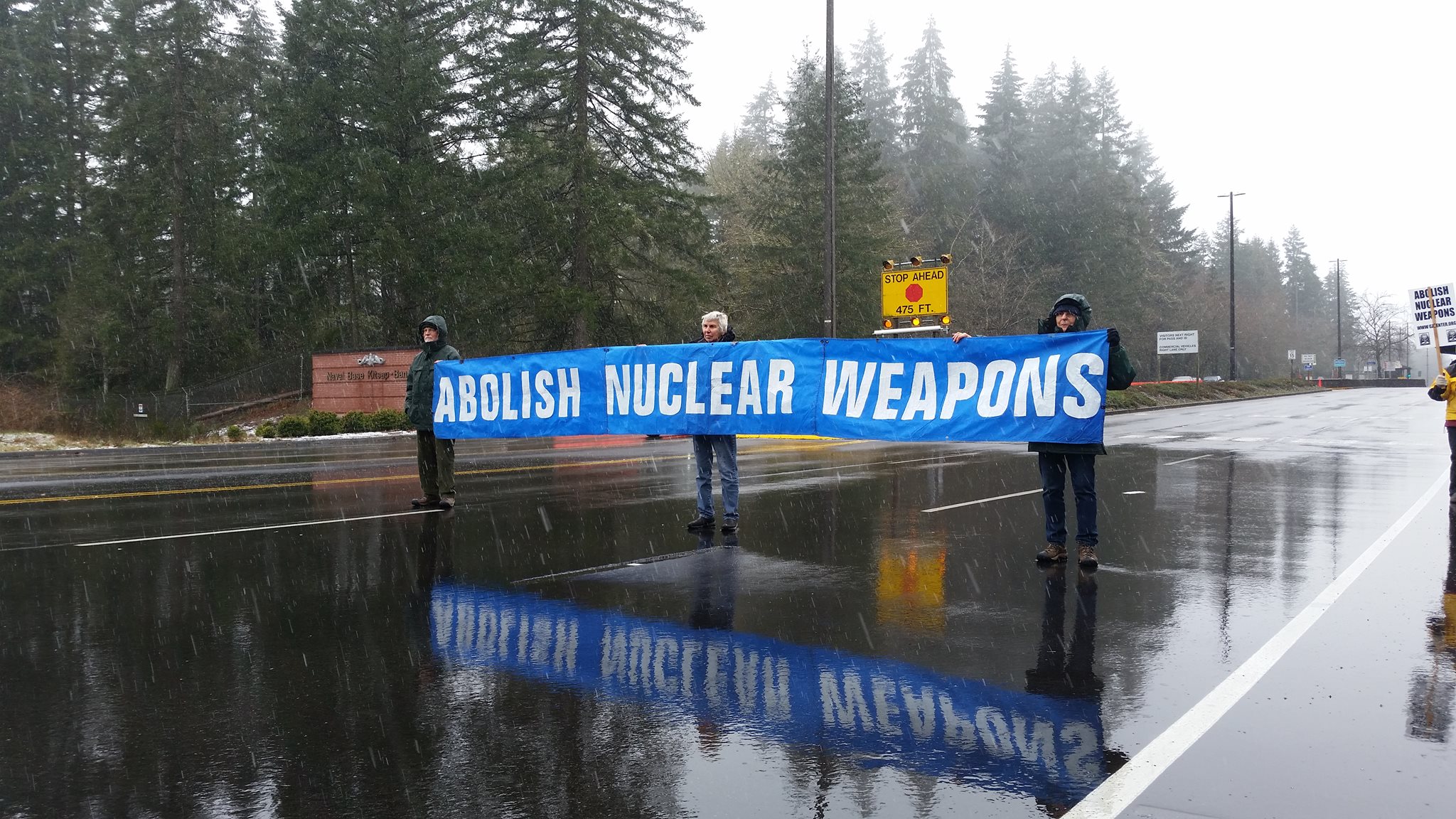Editor’s Note: Thanks to Nick Mele for his stellar onsite reporting of the Federal trial of the PLC Six. Click here to read more about the March 7, 2017 nonviolent direct action that led to yesterday’s trial.
Tacoma, Washington, September 6, 2017: Nuclear resisters were found guilty in US District Court of criminal trespass for their nonviolent protest at a US Navy nuclear weapons installation in Washington State.
In a trial of six nonviolent activists who conducted an act of civil resistance on March 7, 2017 at Naval Base Kitsap-Bangor in Silverdale, Washington, Magistrate Judge David W. Christel found the PLC Six (Mary H. Mele, Karan Founds-Benton, Charles Smith, Betsy Lamb, Steven Kelly SJ, and Alexandria Addesso) guilty of trespassing. The defendants had all stipulated to the Navy’s version of the facts in the case but pleaded not guilty to the charge of criminal trespassing. Their motion to include international law and necessity in their defense had previously been denied at the request of the prosecution.
The six resisters had crossed the marked property line onto the Bangor Trident base while reading sections of the Nuremberg Principles out loud before being arrested by military police. They were charged with trespassing and received ban and bar letters before being released.
They were part of a demonstration at Naval Base Kitsap-Bangor in Silverdale, Washington on March 7th at the conclusion of the Pacific Life Community’s (PLC) annual gathering. The Bangor submarine base, just 20 miles from Seattle, has the largest concentration of deployed nuclear weapons in the U.S. If Washington state were a sovereign nation, it would be the third-largest nuclear-weapons state in the world.
All were sentenced to 100 hours of community service and charged a total of forty dollars in mandatory processing fees and fines. All but Lamb were placed on probation for one year; Lamb was given two years probation because of a prior probation violation.
The judge permitted each defendant to testify about their state of mind at the time they crossed the line at the entrance to Bangor Naval Base. In moving testimony, many spoke of their personal conviction that nuclear weapons are immoral; two pointed out that the president of the United States has sole authority to launch nuclear attacks without any consultative process or review.
Charley Smith of the Eugene, Oregon, Catholic Worker, carried a copy of the Nuremberg Principles when he crossed the line, as did the others; asked to explain their significance to him, Smith replied, “Very simply, if we remain silent or do not challenge the evils of society we are complicit in those evils just as much as those giving the orders to commit crimes against peace, war crimes, or crimes against humanity.”
Alexandria Addesso, the youngest of the defendants spoke movingly of nuclear disarmament as a right to life issue for her and her generation. She noted the many threats to younger people, from climate change to economic stagnation, and said, “I might not have ten, twenty or thirty years of life ahead of me, and I want to work with my peers to end the threat of nuclear annihilation.”
In his closing argument, defense attorney Blake Kremer cited legal precedent to challenge the judge to change the framework of his thinking and temper his verdict based on the facts of the case with his sense of justice.
Before sentencing, Lamb invited Judge Christel to collaborate with the defendants in concluding the trial with an outcome that would be both creative and just. She concluded “I want to quote just two lines from a favorite piece of music of mine, the fourth cantata of Johan Sebastian Bach. Freely translated they read ‘It was an awesome war when life and death contended./The victory remains with life, the reign of death is ended. Alleluia.’ This is my hope.”




